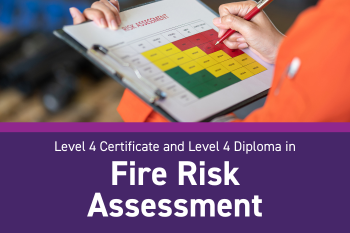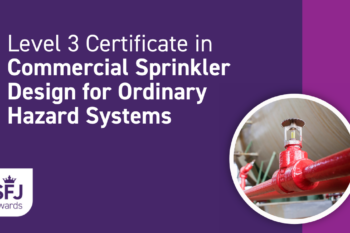Stress Awareness Month
April is Stress Awareness Month. Anyone, at any time, can be susceptible to stress. However, apprentices can often be at a higher risk of experiencing stress due to the intense pressure of balancing workload and upcoming assessments.
Also at higher risk of experiencing stress are those working in the public sector and emergency services. These roles often involve experiencing and participating in high-pressure situations, such as firefighters witnessing life or death moments or police officers dealing with traumatic incidents.
Culminating in the middle of both of these higher-risk groups within the workforce are public sector and emergency service apprentices.
Apprentices can often feel like they have a lot riding on their course. Particularly with the End-Point Assessment (EPA) looming, it’s important to make sure you have support in place for your apprentices at this daunting time.
Here are our five top tips for supporting apprentices with stress in the lead up to their EPA.
Our five top tips
1. Break down workload into small, manageable chunks
Stress can often build when an apprentice’s workload increases. They may feel like they have a lot on their to do list.
To help manage their workload, suggest breaking their workload down into smaller, more manageable chunks. You could suggest the use of kanban boards, for example, using tools such as Trello or Planner on Microsoft Teams, to help make this simple for them to do.
2. Signpost available support
Make sure all the guidance and support available to your apprentices is easily accessible and mentioned regularly. Put in regular catch ups between apprentices and their line managers, and suggest catch ups between fellow apprentices. Make it clear for apprentices to know where to go for support if they are struggling with their mental health.
3. Promote the benefits of a healthy lifestyle
The better apprentices feel in themselves, the better they can concentrate and learn – and ultimately the better they will perform in their EPA.
Encourage your apprentices to have a good routine of eating healthily, getting enough sleep, and taking regular breaks when they can.
Exercise can also be a great stress reliever, mood lifter and can improve concentration, even if it is something simple like a lunch break walk.
4. Encourage peer-to-peer support
Community is powerful. Try to encourage your apprentices to engage with people across your organisation.
This could include:
- Encouraging social events between apprentices outside of the programme.
- Setting up work-based events for your apprentices to get involved in.
- Starting charity events with involvement from apprentices.
Feeling like part of a team will help your apprentices see that there is always help around and that they are never alone with dealing with their workload.
5. Help apprentices know their options
All apprentices can ever be asked to do is to give it their best shot. If they didn’t pass the EPA on the day, resits are available. Don’t put unnecessary pressure on them, especially in the lead up to their EPA.
Remember, apprenticeships are all about making sure employees have the skills and knowledge they will need to carry out in the day-to-day role. There’s no shame if they are not quite ready. Use this opportunity to pinpoint and focus on areas where they need a bit of extra support and guidance.
If you have any questions about the resitting process for EPAs, speak to our EPA team.
Learn about our End-Point Assessment services
We are an approved Independent End-Point Assessment Organisation (EPAO) for a number of public and private sector apprenticeship standards including Operational Firefighter, Emergency Services Contact Handling, Intelligence Analyst, Police Community Support Officer, and more. Find out about our EPA services and get in touch to find out how we can help you today.





